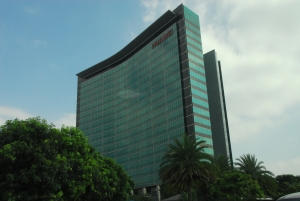Huawei to create 500 UK jobs

Huawei has announced that it will more than double its UK workforce over the course of the next three years, the company said on Wednesday.

Huawei has said it aims to more than double its UK workforce with the creation of around 500 jobs. Photo credit: David Meyer
The recruitment drive will create around 500 new jobs at Huawei's Basingstoke headquarters as it expands its enterprise and device businesses, the company said.
"These new fields will generate significant revenue growth for Huawei and will help the company explore broader ICT and consumer business," Huawei said in a statement.
The company plans to recruit for a range of roles and is looking at candidates with experience ranging from engineers and sales people to management roles.
Additionally, Huawei said that it aims to create another 1,000 to 1,500 subcontracting roles in the same three years, and it is setting up a formal UK graduate programme.
In December 2010, Huawei opened the Cyber Security Evaluation Centre in Banbury with the aim of enhancing the reliability and security of telecoms networks. The centre will allow the Chinese company to certify its products for use in critical national UK infrastructure. CESG, a part of the government intelligence agency GCHQ, oversees the testing process.
The centre was created in part in response to fears of counterfeit hardware components entering the military supply chain — a fear that the UK shares with the US.
Huawei is best known for its network infrastructure business and, in the UK, its takeover in 2005 of the last components of the Marconi defence and communications empire.
Huawei recently offered Transport for London (TfL) £50m-worth of networking equipment as the first step in providing mobile communications for passengers on the Underground. However, the plans were put on indefinite hold on 1 April due to a lack of time to put the system in place. TfL had originally hoped it would be live before the start of the 2012 London Olympics.
Get the latest technology news and analysis, blogs and reviews delivered directly to your inbox with ZDNet UK's newsletters.